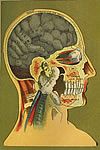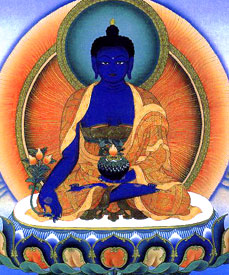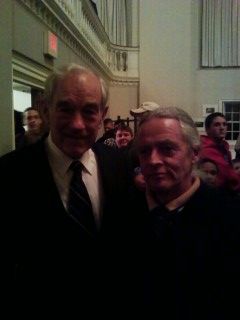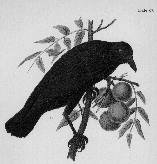|
|
|
|
"All the old remedies do not do any harm if they
do not do any good
which means they are safe remedies to take."
Dr. D.C. Jarvis
Life without numbers in a unique Amazon tribe
Piraha apparently can't learn to count and have no distinct words for colours
By STEPHEN STRAUSS
Friday, August 20, 2004 - Page A3
http://www.theglobeandmail.com/servlet/ArticleNews/TPStory/LAC/20040820/NUMBERS20/TPScience/
1+1=2. Mathematics doesn't get any more basic than this, but even 1+1 would stump the brightest minds among the Piraha tribe of the Amazon.
A study appearing today in the journal Science reports that the hunter-gatherers seem to be the only group of humans known to have no concept of numbering and counting.
Not only that, but adult Piraha apparently can't learn to count or understand the concept of numbers or numerals, even when they asked anthropologists to teach them and have been given basic math lessons for months at a time.
Their lack of enumeration skills is just one of the mental and cultural traits that has led scientists who have visited the 300 members of the tribe to describe the Piraha as "something from Mars."
Daniel Everett, an American linguistic anthropologist, has been studying and living with Piraha for 27 years.
Besides living a numberless life, he reports in a separate study prepared for publication, the Piraha are the only people known to have no distinct words for colours.
They have no written language, and no collective memory going back more than two generations. They don't sleep for more than two hours at a time during the night or day.
Even when food is available, they frequently starve themselves and their children, Prof. Everett reports.
They communicate almost as much by singing, whistling and humming as by normal speech.
They frequently change their names, because they believe spirits regularly take them over and intrinsically change who they are.
They do not believe that outsiders understand their language even after they have just carried on conversations with them.
They have no creation myths, tell no fictional stories and have no art. All of their pronouns appear to be borrowed from a neighbouring language.
Their lack of numbering terms and skills is highlighted in a report by Columbia University cognitive psychologist Peter Gordon that appears today in Science.
Intrigued by anecdotal reports that Prof. Everett and his wife Keren had presented about the mathlessness of Piraha life, Prof. Gordon conducted a number of experiments over a three-year period.
He found that a group of male tribe members -- women and children were not involved because of certain cultural taboos -- could not perform the most elementary mathematical operations.
When faced with a line of batteries and asked to duplicate the number they saw, the men could not get beyond two or three before starting to make mistakes.
They had difficulty drawing straight lines to copy a number of lines they were presented with. They couldn't remember which of two boxes had more or less fish symbols on it, even when they were about to be rewarded for their knowledge.
A significant part of the difficulty related to their number-impoverished vocabulary.
Although they would say one word to indicate a single thing and another for two things, those words didn't necessarily mean one or two in any usual sense. "It is more like oneish and twoish," Prof. Gordon said in an interview.
Prof. Everett, who now teaches at the University of Manchester in England and who unlike Prof. Gordon is a fluent Piraha-speaker, takes issue even with the "ishness" of the Piraha numbers.
"The word he [Gordon] translates as 'one' means just a relatively small amount, the word for 'two' means a relatively bigger amount," he said in an interview from Brazil.
Prof. Everett points out that when the Piraha are talking and use the "oneish" word to talk about something such as fish, you can't tell whether they are describing a single fish, a small fish, or one or two fish.
Linguists and anthropologists who have seen both the Everett and Gordon studies are flabbergasted by the tribe's strangeness, particularly since the Piraha have not lived in total isolation.
The tribe, which lives on a tributary river to the Amazon, has been in contact with other Brazilians for 200 years and regularly sells nuts to, and shares their women with, Brazilian traders who stop by.
"Why they have been resistant to adopting Western number systems is beyond me," Ray Jackendoff of Brandeis University, a past president of the Linguistic Society of America, said in an interview.
Prof. Gordon said the findings are perhaps the strongest evidence for a once largely discredited linguistic theory.
More than 60 years ago, amateur linguist Benjamin Lee Whorf argued that learning a specific language determined the nature and content of how you think.
That theory fell into intellectual disrepute after linguist Noam Chomsky's notions of a universal human grammar and Harvard University professor Steven Pinker's idea of a universal language instinct became widely accepted.
"The question is, is there any case where not having words for something doesn't allow you to think about it?" Prof. Gordon asked about the Piraha and the Whorfian thesis. "I think this is a case for just that."
Prof. Everett argues that what the Piraha case demonstrates is a fundamental cultural principle working itself out in language and behaviour.
The principle is that the Piraha see themselves as intrinsically different from, and better than, the people around them; everything they do is to prevent them from being like anyone else or being absorbed into the wider world. One of the ways they do this is by not abstracting anything: numbers, colours, or future events.
"This is the reason why the Piraha have survived as Piraha while tribes around them have been absorbed into Brazilian culture," Prof. Everett said.
Nevertheless, the Piraha's lives and lifestyles are so strange that other anthropologists have raised the question of whether inbreeding -- their lack of number skills apparently makes it difficult for the Piraha to identify kin -- has resulted in a tribe of intellectually handicapped people.
Both Prof. Everett and Prof. Gordon say that they have seen no examples of this and that the Pirahas' fishing, hunting and even joking skills seem equal to those of people elsewhere.
|
|
The word for "one" can also mean "a few", while "two" can also be used to refer to "not many".
Peter Gordon of Columbia University in New York said their skill levels were similar to those of pre-linguistic infants, monkeys, birds and rodents.
He reported in the journal Science that he set the tribe simple numerical matching challenges, and they clearly understood what was asked of them.
"In all of these matching experiments, participants responded with relatively good accuracy with up to two or three items, but performance deteriorated considerably beyond that up to eight to 10 items," he wrote.
Language theory
Dr Gordon added that not only could they not count, they also could not draw.
"Producing simple straight lines was accomplished only with great effort and concentration, accompanied by heavy sighs and groans."
The tiny tribe live in groups of 10 to 20 along the banks of the Maici River in the Lowland Amazon region of Brazil.
Dr Gordon said they live a hunter-gatherer existence and reject any assimilation into mainstream Brazilian culture.
He added that the tribe use the same pronoun for "he" and "they" and standard quantifiers such as "more", "several" and "all" do not exist in their language.
"The results of these studies show that the Piraha's impoverished counting system truly limits their ability to enumerate exact quantities when set sizes exceed two or three items," he wrote.
"For tasks that required cognitive processing, performance deteriorated even on set sizes smaller than three."
The findings lend support to a theory that language can affect thinking.
Linguist Benjamin Lee Whorf suggested in the 1930s that language could determine the nature and content of thought.
Story from BBC NEWS:
http://news.bbc.co.uk/go/pr/fr/-/2/hi/americas/3582794.stm
Published: 2004/08/20 12:38:00 GMT
© BBC MMIV
Nyen Diseases in Tibetan Medicine,
Dr. Trogawa
Cause of Diabetes
According to the Tibetan Medical Sources, Dr. Trogawa
An
Interview with Eliot Tokar regarding his studies with Dr. Trogawa, Dr.
Dhonden and others (pdf)
Transformation
and Balance:
The
Principles of Tibetan Medicine in the Context of American Healthcare, Eliot
Tokar (pdf)
Experts Defining Mental Disorders Are Linked to Drug Firms
Pictures from Tibet and Ladakh Circa 1986

The Household
Physician
How Scientific Is Modern
Medicine?

Medicine Buddha holding myrobalan
|
|
|
|

"Tibetan incense, medicinal powder, and
Tibetan 'precious pills' are in
great demand here," said one police officer who asked not to be
named.
"People believe that it can prevent the virus. And SARS hasn't spread
to Tibet."
Radio Free Asia-May 7, 2003
|
|
|
|



Handbook of Traditional Tibetan Drugs:
Their
Nomenclature,Composition, Use and Dosage

![]()
1912 Tibet Stamp Sheet Originals
From Which Our Reprints Have Been Made
____________________________________

With Dr. Paul, Peterborough NH Dec 13 2011
A very sweet person with tons of young children and families
in the audience.
Dr. Paul delivered over 4000 babies_he said he went into
gynecology medicine so he could deliver babies because
he thought it would be a happy type of career.
|
|
 |